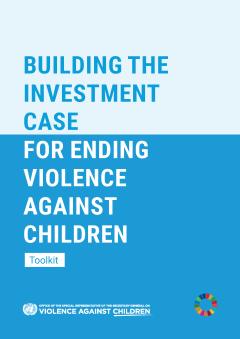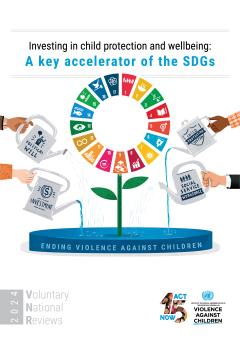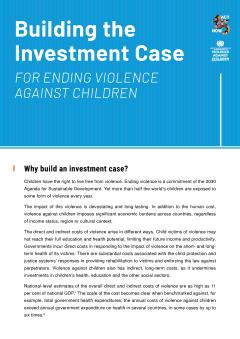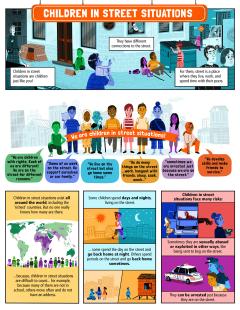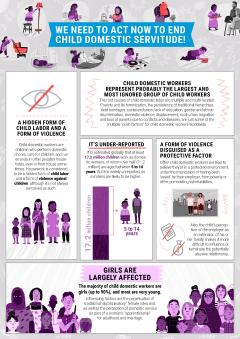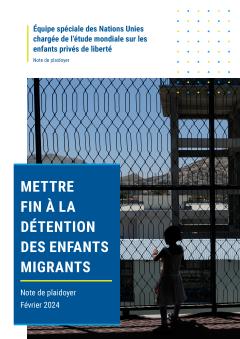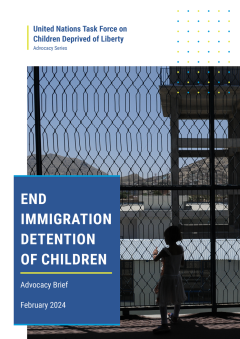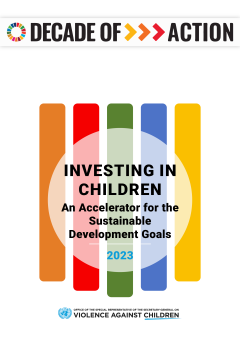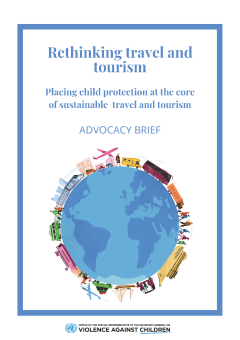Ending violence against children makes economic sense. Spending on child protection and well-being should be seen as an essential investment in building human capital and ensuring people-centred development across the lifecycle. Yet current levels of spending on the prevention and response to violence remain low.
Publications
The close interconnection between the 2030 Sustainable Development Agenda and children’s well-being needs to be made explicit. This year’s advocacy brief shares reflections focusing on the cross-sectoral approaches taken by Member States, highlighting how investment in a holistic approach to the implementation of the Sustainable Development Goals (SDGs) contributes to the prevention and response to violence against children, and how addressing violence against children supports progress towards these goals.
Children have the right to live free from violence. Ending violence is a commitment to the 2030 Agenda for Sustainable Development. Yet more than half the world’s children are exposed to some form of violence every year. The impact of this violence is devastating and long-lasting.
Children in Street Situations discusses the challenges faced by children living on the streets, including their exposure to violence, exploitation, and lack of access to basic services such as education and healthcare. It highlights the need for a comprehensive approach to address their needs, which includes legal protection, social services, and community support. The document emphasizes the importance of understanding the root causes that lead children to the streets and implementing policies focusing on prevention, protection, and rehabilitation.
Child domestic workers represent probably the largest and most ignored group of child workers.
The root causes of child domestic labor are multiple and multi-faceted. Poverty and its feminization, the persistence of traditional hierarchies, debt bondages, social exclusion, lack of education, gender and ethnic discrimination, domestic violence, displacement, rural-urban migration and loss of parents due to conflicts and diseases are just some of the multiple “push factors” for child domestic workers worldwide.
Cette forme de violence entrave la réalisation par le pays concerné des objectifs énoncés dans le Programme de développement durable à l’horizon 2030, en particulier les cibles 10.7 et 16.2. Tous les enfants, quel que soit leur statut juridique ou migratoire ou celui de leur famille, ont le droit d’être pris en charge et protégés contre la violence, la maltraitance et l’exploitation.
Immigration Detention is never in the best interests of the child and constitutes a child rights violation. It is a form of violence that impacts a country’s capacity to achieve the 2030 Agenda for Sustainable Development, especially targets 10.7 and 16. All children, regardless of their legal or migratory status or that of their families, have the right to be cared for and protected from violence, abuse and exploitation. This advocacy brief provides an overview of promising practices and lessons learned to end child immigration detention and sets out a range of policy actions needed to scale up efforts to end this form of violence.
This brief explores how investment in a holistic approach to the SDGs can contribute to the prevention of – and response to – violence against children, illustrated with examples from the 2023 VNRs.These examples are not exhaustive, but they highlight promising practices with the aim of encouraging Member States to enhance overall investment in children and their well-being. The brief also shares other examples that have impressed the SRSG-VAC during her engagements with various stakeholders.
The travel and tourism sectors are vital in supporting the livelihood and development of communities and countries worldwide. Promoting responsible, accessible, and sustainable tourism is also essential to achieving the 2030 Agenda. However, many child protection challenges emerge in the context of travel and tourism, whether due to offenders moving within or between States or as an unintended result of the activities and operations of the sector itself.


